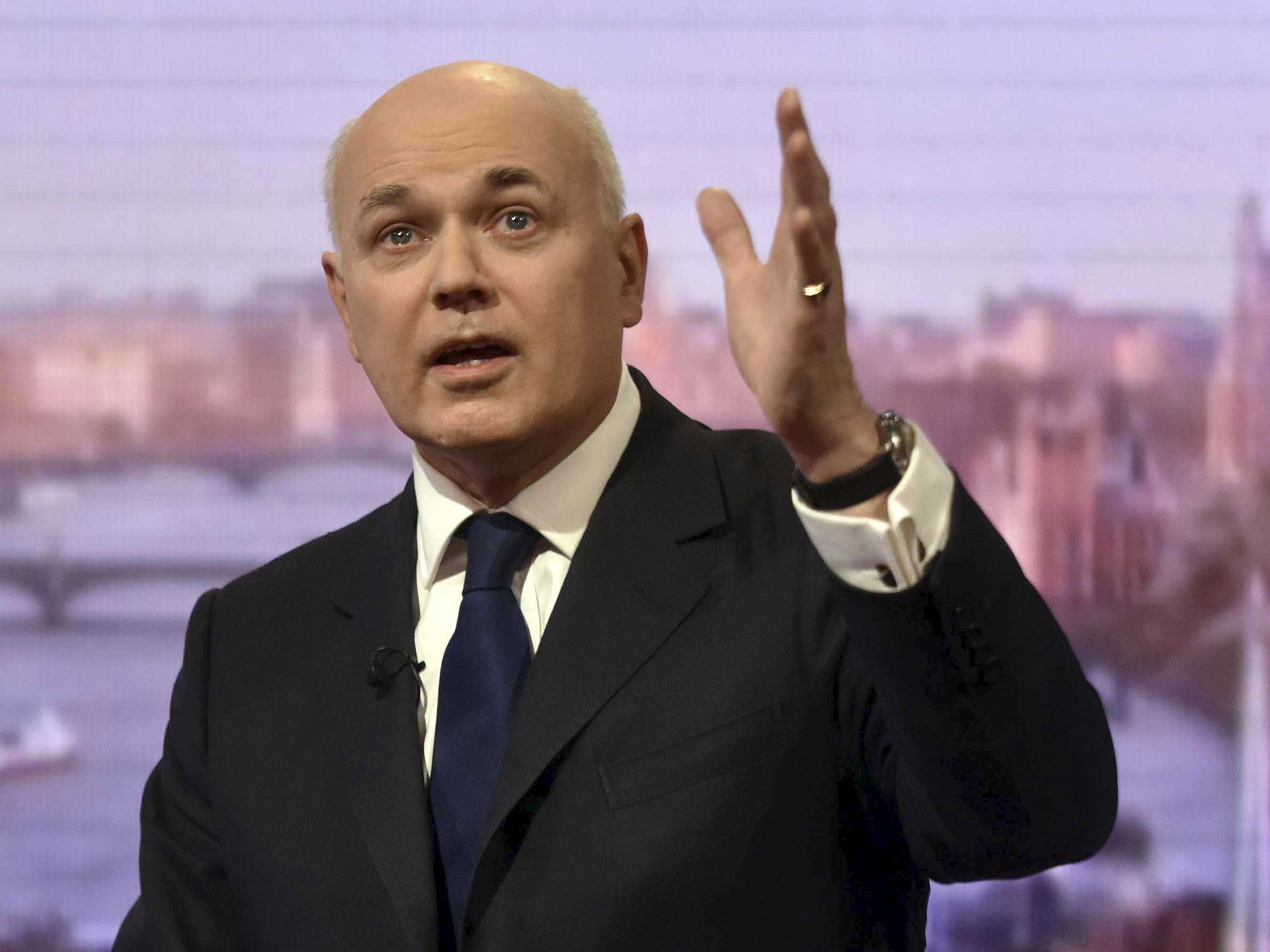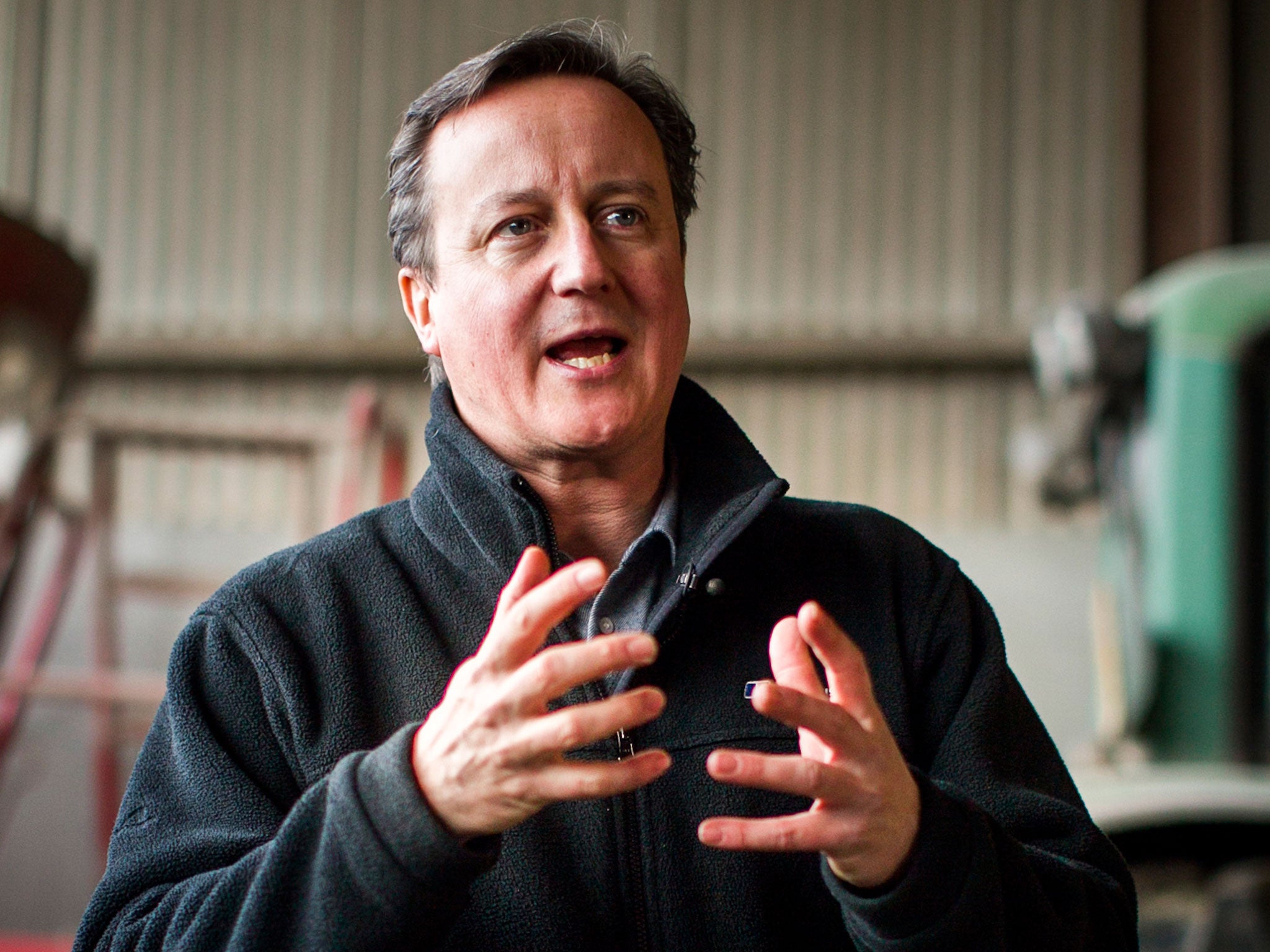EU referendum: Tory rifts on Europe widen as Iain Duncan Smith attacks 'pessimistic' David Cameron
Work and Pensions Secretary hits out at those who warned of the economic impacts of a vote to leave

Your support helps us to tell the story
This election is still a dead heat, according to most polls. In a fight with such wafer-thin margins, we need reporters on the ground talking to the people Trump and Harris are courting. Your support allows us to keep sending journalists to the story.
The Independent is trusted by 27 million Americans from across the entire political spectrum every month. Unlike many other quality news outlets, we choose not to lock you out of our reporting and analysis with paywalls. But quality journalism must still be paid for.
Help us keep bring these critical stories to light. Your support makes all the difference.
Iain Duncan Smith effectively accused David Cameron of having a “low opinion of the British people” on Sunday as attempts to keep Tory splits over Europe civil appeared to be unravelling.
In remarks clearly aimed at the Prime Minister, the Work and Pensions Secretary hit out at those who warned of the economic impacts of a vote to leave the EU for “pessimistically downsizing” Britain’s role in the world.
Meanwhile George Osborne slapped down Boris Johnson for comparing himself to a man on a mission to rescue Britain from Brussels “baddies”.
“This isn’t some amusing adventure into the unknown – it’s deadly serious,” he said.
The Foreign Secretary, Phillip Hammond, also called the Eurosceptic MP Sir Bill Cash “a total shit” for releasing a Brussels legal report on the EU deal to the media despite an understanding that it was not to be published.
In an interview with the BBC Mr Duncan Smith made little effort to disguise his attack on Mr Cameron, who has made the fear factor a key part of the early campaign.
“I have never heard such a lot of pessimistic downsizing of Britain’s future outside of the EU,” he said.
“Why would we have such a low opinion of the British people that we go out and talk about leaping into the dark, we talk about profound shocks, we talk about them not being capable, we’re too small.”

He then added pointedly: “I do not know why anybody would want to run a country like this.”
Tory Cabinet members in favour of Leave have become increasingly irritated with Downing Street’s tactics in the referendum. They believe Mr Cameron broke his own ‘no personal attacks’ rule when he obliquely suggested that Boris Johnson might be supporting the leave campaign because of personal ambition rather than long held beliefs.
They are also concerned that Downing Street tactics of warning of the threats posed by Brexit are beginning to resonate with voters and are attempting to counter them.
Mr Duncan Smith appeared to be responding to an article written by Mr Cameron at the weekend accusing the Leave campaign of not have a proper economic plans for Britain’s future outside the EU.
Mr Cameron challenged them to set out how long the economy would face uncertainty, how joint-security arrangements would be replaced and how Britain’s role and influence in the world would be maintained.
“With so many gaps in the ‘out’ case, the decision is clearly one between the great unknown and a greater Britain,” he said. “A vote to leave is the gamble of the century. And it would be our children’s futures on the table if we were to roll the dice.”
In contrast Mr Duncan Smith said the UK market was so important to other EU businesses that other member states would “have a real requirement to trade with us”.
“The Prime Minister says there is a challenge to know what life outside looks like. My answer to this challenge is very simple: we do a deal with the European Union.
“That is a trade deal, about access to our markets, access to theirs. Part of our red lines will be about us being able to control the borders as we want. We want migration but we want it as controlled migration so we can cope with it. That deal is very doable.”
Addressing the current restrictions on pro-Brexit ministers’ access to Government EU referendum material, Mr Duncan Smith said this couldn’t “possibly apply in the sense of us not knowing what is going on in the department because we are responsible for the department”.
“For example, I will have to work on these proposals which came back from the recent negotiations,” he added.
The Cabinet Secretary, Sir Jeremy Heywood, is due to appear before the Public Administration and Constitutional Affairs Committee tomorrow to be pressed over critics’ allegations that it breaches neutrality rules.Mr Cameron has insisted that while he has given ministers the right to campaign on the opposing side in a personal capacity, the Government has a formal position and the Civil Service must work to deliver that policy.
In a further sign of the tensions between Tory inners and outers the Commons leader Chris Grayling warned Mr Cameron against a “purge” after the referendum.
Mr Grayling said there should be “no recriminations” from either side amid reports that some Tory MPs may try to oust the PM even if the UK votes to remain in the EU.
“I have to say I don’t believe at the moment the Prime Minister is sitting in Downing Street plotting sackings of ministers,” Mr Grayling told Sky News. “I mean, it would not be at all sensible when the referendum is over for there to be a purge of people on either side of the argument.
Subscribe to Independent Premium to bookmark this article
Want to bookmark your favourite articles and stories to read or reference later? Start your Independent Premium subscription today.
Join our commenting forum
Join thought-provoking conversations, follow other Independent readers and see their replies
Comments